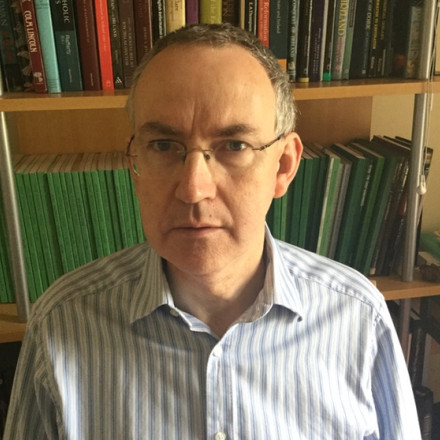The Reformation in Ireland and England: changing stories
A generation ago we thought that we understood the Reformation in England and Ireland. Today, 500 years after Martin Luther’s momentous protest against indulgences, we are not so sure. With the Church of England and the Catholic Church in Ireland in seemingly irreversible decline, historians have re-written their histories, questioning everything we once thought was true. Now, however, a clearer understanding of the formative years of the Church of England and Church of Ireland is starting to emerge.
A generation ago we thought that we understood the Reformation in England and Ireland. Today, 500 years after Martin Luther’s momentous protest against indulgences, we are not so sure. With the Church of England and the Catholic Church in Ireland in seemingly irreversible decline, historians have re-written their histories, questioning everything we once thought was true. Now, however, a clearer understanding of the formative years of the Church of England and Church of Ireland is starting to emerge. Orthodox histories Geoffrey Dickens’ The English Reformation (1964) presented a thesis which argued that the Catholic Church in late medieval England was “ripe for Reformation”. It was a rich and powerful institution, but inspired a lot of lay resentment and it failed to satisfy people’s spiritual needs. He traced the positive response in England to the spread of Lutheran theology along trade routes from Germany, through the universities and through print even before Henry VIII’s breach with Rome. During his struggles with the papacy Henry VIII found it expedient to promote Lutherans to the English bench of bishops, and in his government. Under their influence Henry shut the monasteries, had an English translation of the Bible placed in every English church and had his son and successor, Edward, educated as a Protestant. Once Edward VI became the king he in turn decreed, with the English parliament’s approval, that Archbishop Thomas Cranmer’s Book of Common Prayer replace the Catholic Mass and other Latin liturgies for all religious services across England and Ireland. Dickens reckoned that England was already well on the way to becoming a Protestant kingdom by the time that Edward died in 1553. Edward was succeeded by his Catholic half-sister, Mary, who was determined to restore the Catholic Church in England and Ireland. However, Bloody Mary’s burning to death of hundreds of Protestants during her short reign appalled the English people and made them welcome the resumption of the Reformation under Elizabeth Tudor. For Dickens, an earnest Anglican, the English Reformation was an unadulterated success. By contrast, R.D. Edwards’ Church and State in Tudor Ireland (1935) made the failure of the Reformation in Ireland seem inevitable. Edwards, a committed Catholic, saw the English Reformation as a political phenomenon that simply could not be imposed on Ireland because the Irish had a “fundamentally Catholic disposition”. He presented the Reformation in Ireland as a sorry tale of religious persecution that failed in the face of resolute Irish commitment to Catholicism. Just as the English seemed almost predestined to become Protestant, the Irish seemed predestined to remain Catholic. Revisionist histories In the last decades of the twentieth century, as more and more of the English and Irish turned away from Christianity, new interpretations of the Reformation were put forward on both sides of the Irish Sea. English ‘revisionist’ historians showed that the late medieval Church in England was vibrant and popular before the Reformation, and they argued that the Reformation came not as a result of a general discontent with the Catholic Church but because of unpopular royal diktats. Christopher Haigh, the father of English ‘revisionism’, later admitted that the revisionists became obsessed with explaining why the Reformation ought not to have happened, and they failed to explain why it did.* Full article available in printed copies.

Henry A Jefferies
is an Associate Member of the Arts & Humanities Research Institute, Ulster University, a teacher and writer on Irish ecclesiastical history.